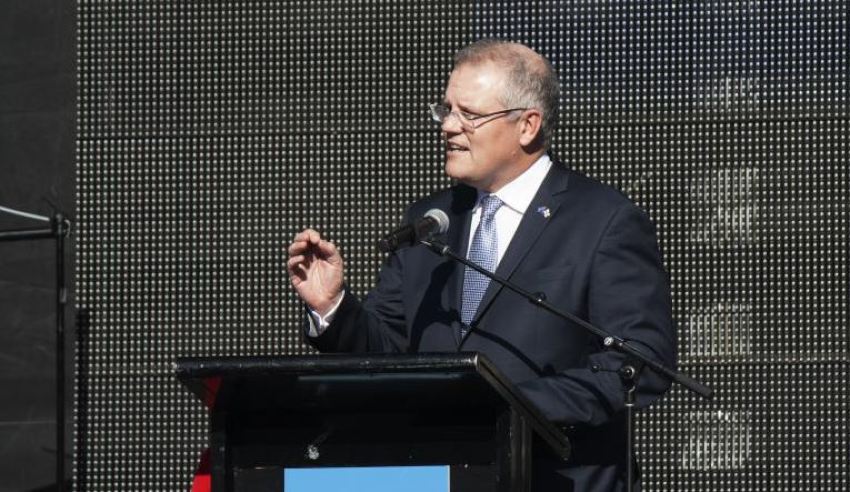Prime Minister Scott Morrison has been urged to waste no time in lobbying for “more activist” US engagement in the Indo-Pacific following President-elect Joe Biden’s inauguration.
Counter-balancing the growing threat of an emboldened China in the Indo-Pacific has become one of the key priorities of the Morrison government following a deterioration in Australia-China relations.
This has become particularly evident in recent months, with China flexing its economic muscle to silence an increasingly vocal Australia, which has called out its human rights abuses, supported an independent inquiry into the origins of the coronavirus, and blocked CCP-backed commercial entities (like Huawei) from accessing its market.
To China’s dismay, Prime Minister Scott Morrison has doubled down, stressing that the government would not compromise on “matters that go to Australia's national sovereignty”.
Instead, the PM has sought to strengthen ties with traditional allies in a bid to assure Australia’s security in the Indo-Pacific region (IPR).
This has included the signing of the Reciprocal Access Agreement (RAA) with Japan — an in-principle agreement aimed at facilitating greater practical engagement between the Australian Defence Force and the Japanese Self-Defense Forces, enhancing inter-operability and co-operation.
The PM has also called on support from Australia’s oldest ally, Great Britain, backing the Policy Exchange’s recommendations for a bolder Britain in the Indo=Pacific.
This push has come amid uncertainty over the incoming Biden administration’s Indo-Pacific strategy.
Biden’s picks for his national security and foreign policy team suggest that a return to the Obama-era approach is on the cards.
But according to executive director of the Australian Strategic Policy Institute (ASPI), Peter Jennings, such uncertainty should not deter Prime Minister Morrison from proactively lobbying Washington for a stronger US presence in the Indo-Pacific in the face of Chinese President Xi Jinping’s bullying tactics.
“Whatever Biden’s reticence about America’s role, no global leader is better placed than Morrison to shape a more activist US engagement in the Indo-Pacific,” Jennings writes.
“Our management of COVID-19 and widely respected pushback against Xi’s bullying has bought Australia a privileged place at the alliance table.”
Jennings has urged the PM to swiftly visit Washington following Biden’s inauguration to “help shape” the leader of the free world’s thinking about America’s role in the Indo-Pacific.
“If Biden is to develop a strategic approach that also serves Australia’s interests, we need to craft our place in that coalition effort,” he continues.
“There is no more urgent Australian policy development task.”
ASPI’s executive director believes Prime Minister Morrison’s approach should involve:
- encouraging the US to employ a common response against Chinese economic coercion;
- a formalising of ‘Quad’ defence co-operation that also involves Japan and India;
- a shared condemnation of China’s dismantling of Hong Kong’s autonomy;
- an agreement to develop supply chains that shun Chinese forced labour; and
- combined planning to strengthen the defence of Taiwan.
“The bedrock of our strategic credibility is our military and intelligence co-operation, more of which will be needed to make the alliance, now in its 70th year, fit for the purposes it must serve today,” Jennings adds.
“We must ask what more can be done to strengthen America’s military presence and co-operation in the region and what the Australian Defence Force can do to deter authoritarian military adventurism.”
Jennings concludes: “This will require more regional leadership from Australia than we have been comfortable delivering up until now, but the price of an engaged Washington is an activist Canberra.
“Biden’s strategic ambition is ours to sway.”
Get involved with the discussion and let us know your thoughts on Australia's future role and position in the Indo-Pacific region and what you would like to see from Australia's political leaders in terms of partisan and bipartisan agenda setting in the comments section below, or get in touch with



